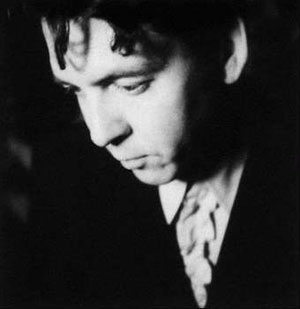Bad Vibes Everybody
Man, I unleashed some bad karma on myself with my harshin' on the beatification of Mother Theresa. I've (though I'm pretty sure my wife brought it home from work) come down with a cold/flu-like thing where my joints ache and my head burns and my throat is raw and my glands swollen. My reactions are a little slow as well - this morning, I went to back out of the driveway, forgot I hadn't shifted to reverse from first and jolted forward into my grill (no harm done to car or grill). But the bad juju isn't my first fall cold. What's disturbing about this whole thing is that my joint aches are worst in my hands and feet; I have stigmata pains.
On the back of my hands, between the metacarpals leading to my middle and ring fingers (I don't know the correct medical terminology, so bear with me), there is a more acute ache, with some tenderness. On my feet, the pain is between the metatarsals leading to my big and second toe, and again, it is sensitive to the touch with a general aching feeling. If your wondering, I have no pains in my side anywhere, but the hands and feet are disturbing. Maybe it is just my Catholic upbringing haunting me with guilt, but I'm making a public apology to Mother Theresa for my mocking of her ceremony. Though I'm sure it's just a weird localization of my flu symptoms, I'm taking no chances. I wrote a little poem for Mother Theresa:
I'm going to hell now, aren't I?
On the back of my hands, between the metacarpals leading to my middle and ring fingers (I don't know the correct medical terminology, so bear with me), there is a more acute ache, with some tenderness. On my feet, the pain is between the metatarsals leading to my big and second toe, and again, it is sensitive to the touch with a general aching feeling. If your wondering, I have no pains in my side anywhere, but the hands and feet are disturbing. Maybe it is just my Catholic upbringing haunting me with guilt, but I'm making a public apology to Mother Theresa for my mocking of her ceremony. Though I'm sure it's just a weird localization of my flu symptoms, I'm taking no chances. I wrote a little poem for Mother Theresa:
She's nigh a saint, not missing much
Do do do do do do
oh, yeah
She's well acquainted with
the touch of a leper's hand
Like a lizard's yet wrought with pain
The man in the crowd with the
multicolored pustule in his hairline's roots
Crying with her eyes while her
hands are busy working overtime
A Pope's impression of her life which
he gave and anointed her a canon first
I need to be fixed 'cause I'm going down
Downed by stigmata and a swollen crown
I need to be fixed 'cause I'm going down
Mother Theresa's juju won
Mother Theresa's juju won
Mother Theresa's juju won
Mother Theresa's juju won
Mother Theresa's juju won
Mother Theresa's juju won
Happiness is a warm Nun
Happiness is a warm Nun (Mama)
When I hold you in my heart
and I feel stigmata with my fingers
I know nobody can do no harm
Because Happiness is a warm Nun (Mama)
Happiness is a warm Nun, yes it is
Happiness is a warm, yes it is, Nun
Ah, don't you know that
Happiness is a warm Nun (Mama)
I'm going to hell now, aren't I?

